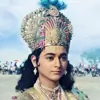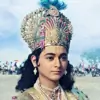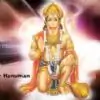In the Mahabharata, Krishna defines Dharma as: "Dhaaranaad dharma ity aahur dharmena vidhrtaah prajaah, Yat syaad dhaarana sanyuktam sa dharma iti nishchayah," or, "Dharma upholds both this-worldly and other-worldly affairs" (Mbh 12.110.11).
Dharma as a "Purushartha"In moving through the four ashrams, or stages of life, viz. Brahmacharya, Grihastha, Vaanprastha , Sanyaasa, a person also seeks to fulfill the four essentials (purushaartha) of Dharma, Artha (worldly gain), Kama (sensual pleasures), and Moksha (liberation from reincarnation or rebirth). Moksha, although the ultimate goal, is emphasized more in the last two stages of life, while Artha and Kama are primary only during Grihastha. Dharma, however is essential in all four stages.
The deity named Dharma
Dharma is also the name of a deity or "Deva" in charge of Dharma. Mythologically, he is said to have been born from the right breast of Brahma, is married to ten daughters of Daksha and fathers Shama, Kama and Harahsa. He is also the father of the celebrated Rishis Hari, Krishna, Nara-Narayana.
In the epic Mahabharata, he is incarnate as Vidura.[7] Also, Dharma is invoked by Kunti and she begets her eldest son Yudhisthira from him. As such Yudhisthira is known as Dharmaputra. There is also an assimilation of God Dharma and Yama, the God of the Dead in the Mahabharata.[8]
Adharma is the Sanskritantonym of Dharma. It means 'that which is not in accord with the law' - referring to both the human written law and the divinely given law of nature. Connotations include unnaturalness, wrongness, evil, immorality, wickedness, or vice.





















